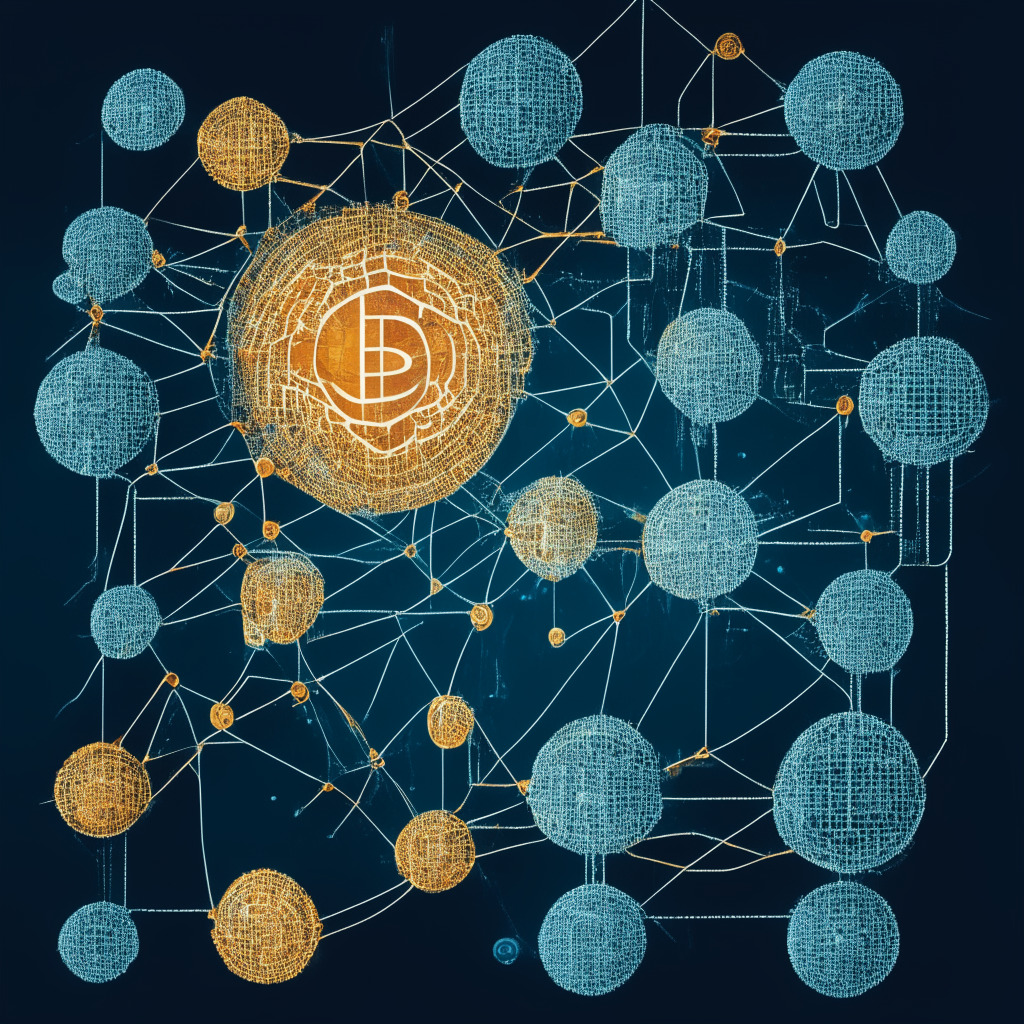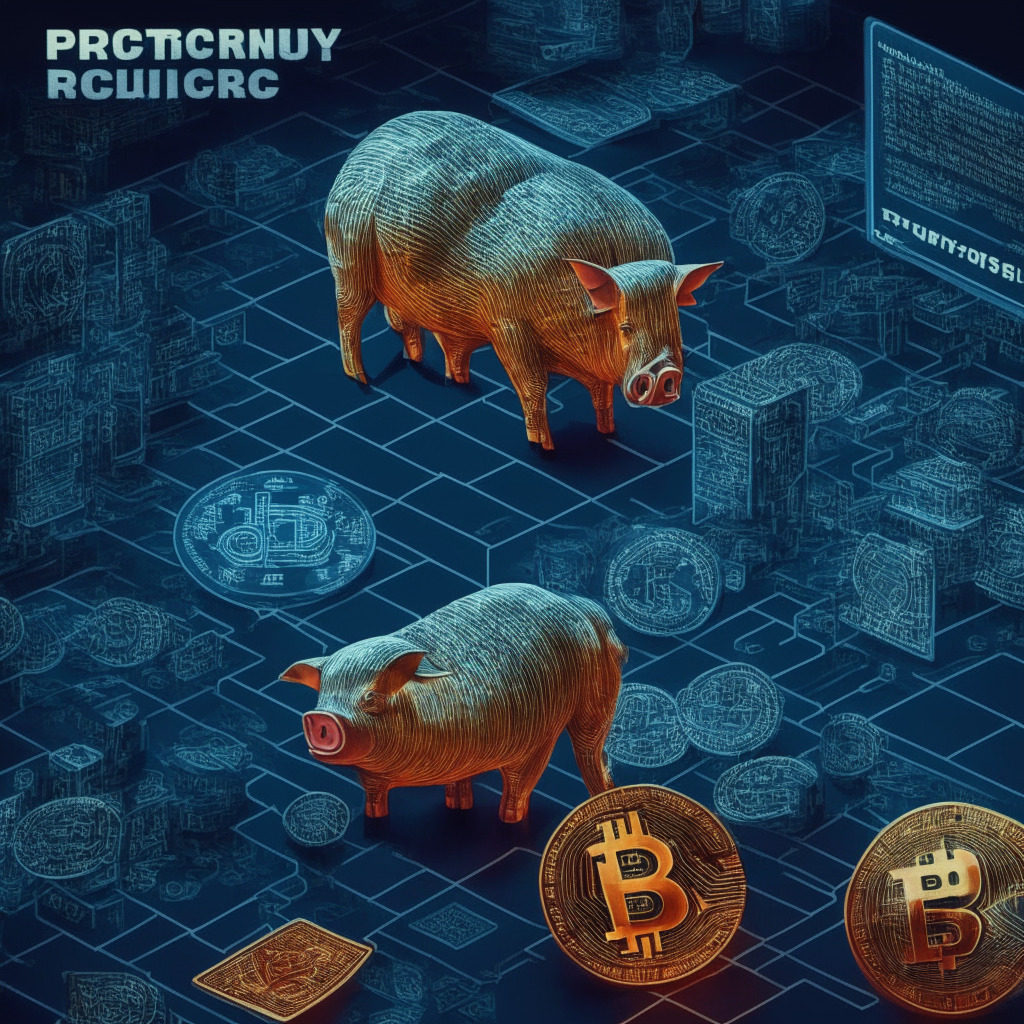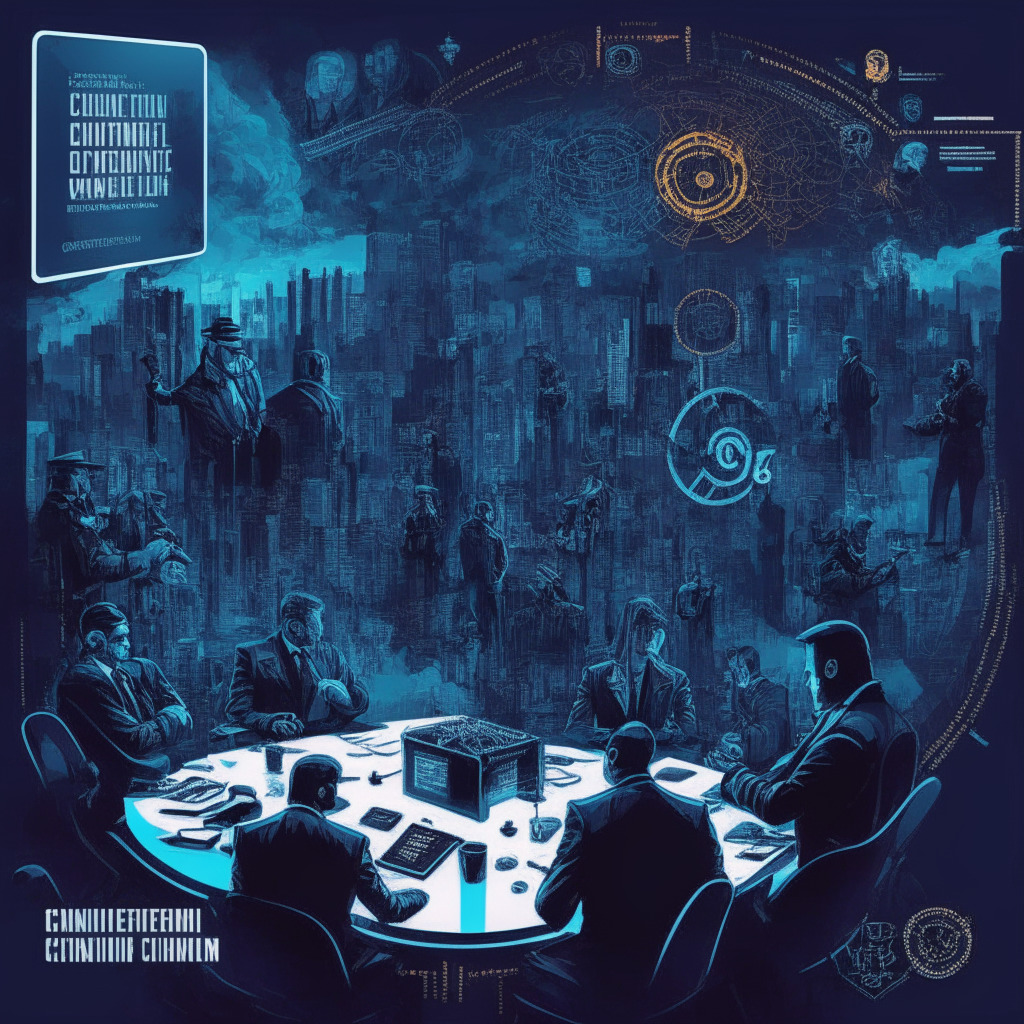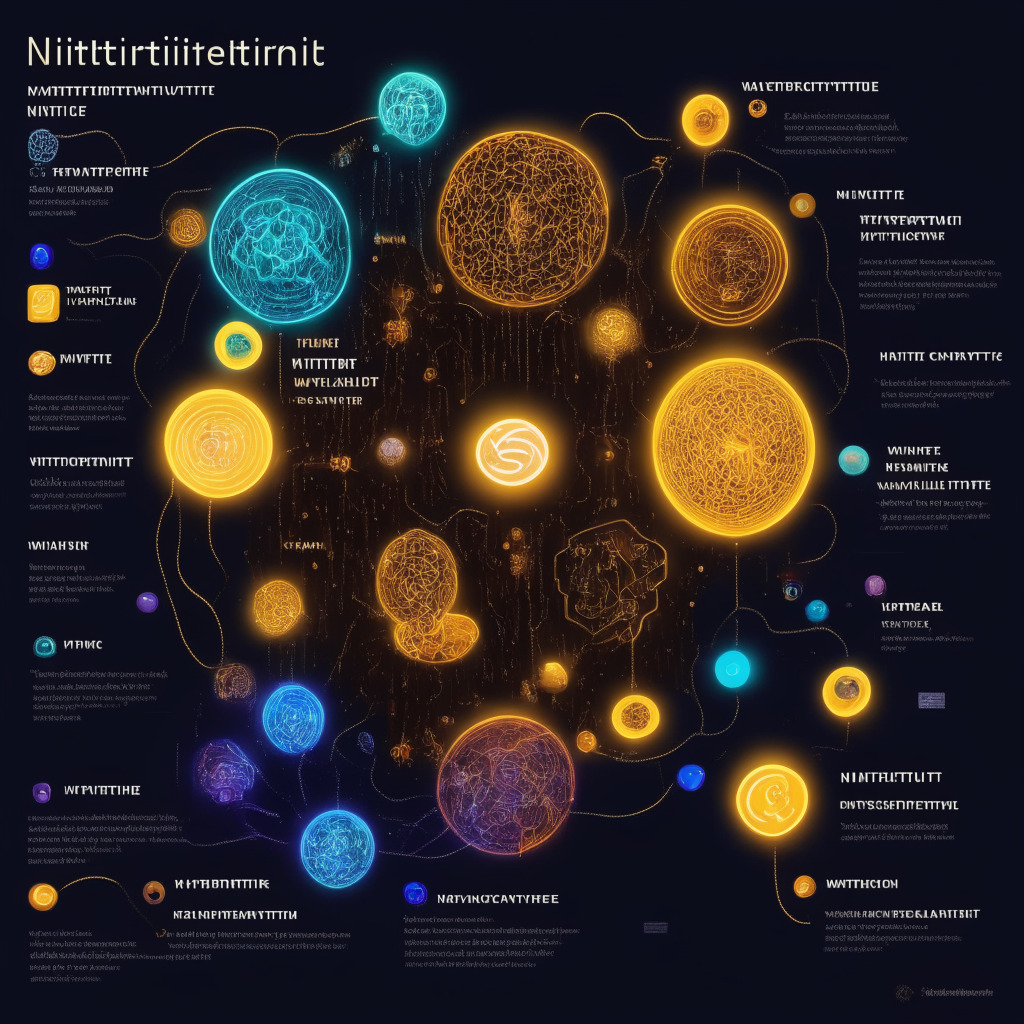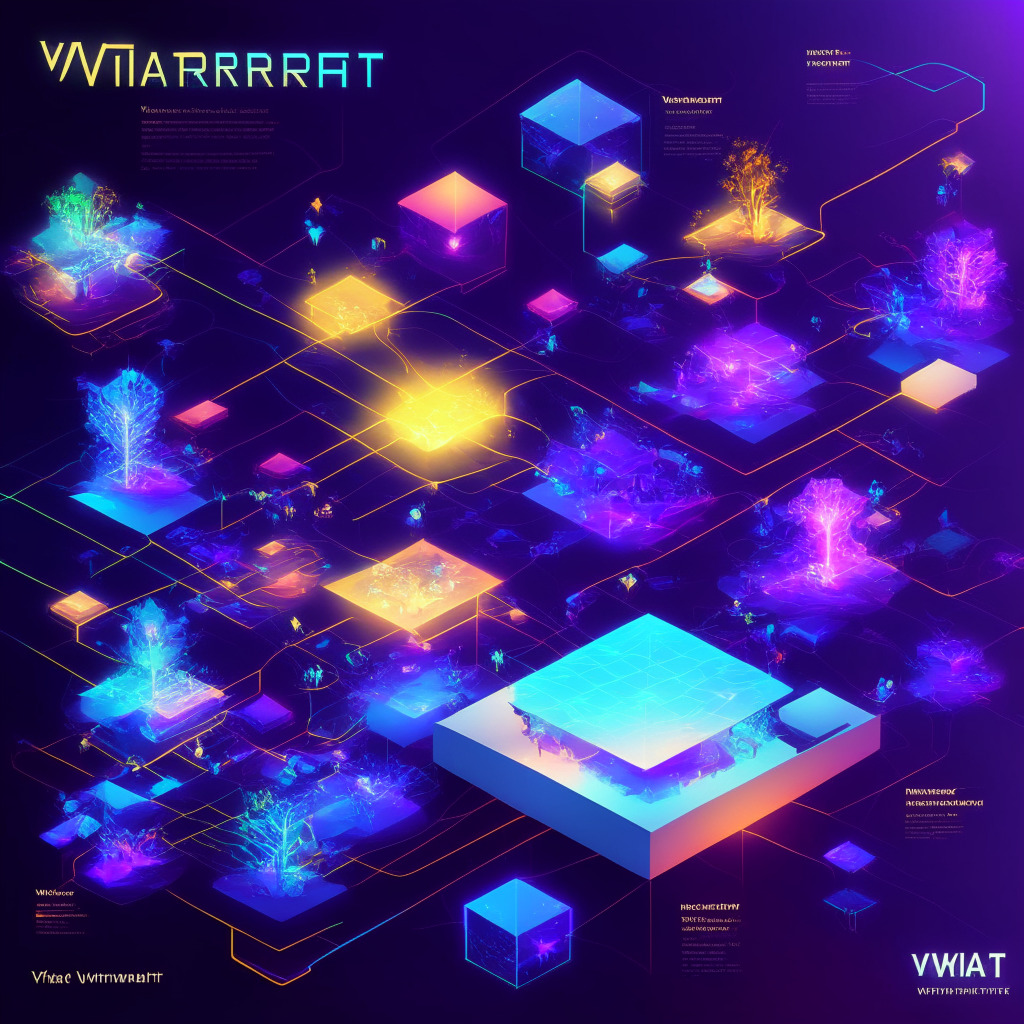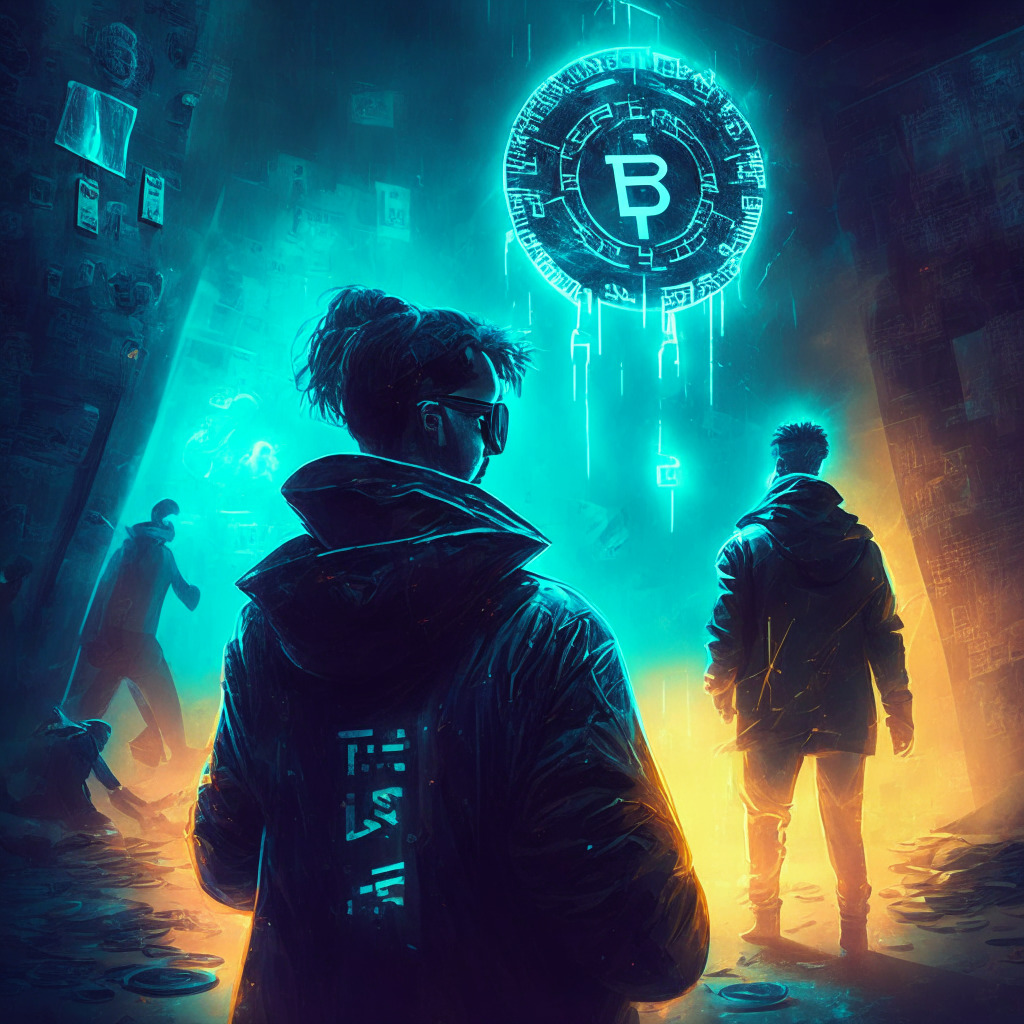NFTrade, an NFT marketplace, has introduced cross-chain purchases and payments on Ethereum, BNB Chain, Polygon, and Avalanche via partnership with Rarimo. This enables users to initiate a purchase on one network and pay on another seamlessly, improving the Web3 user experience.
Search Results for: Immutable
Blockchain MMORPGs: The Game Changer or Hindered by Skepticism and Regulation?
Incorporating blockchain technology into MMORPGs can potentially solve longstanding issues like rollbacks, ensuring permanent, tamper-proof transactions. Despite regulatory hurdles and skepticism surrounding cryptocurrencies, advancements like end-to-end encryption and quantum computing could bring about a paradigm shift in the gaming industry, benefiting both players and developers.
Openfort’s Wallet-as-a-Service: Revolutionizing Crypto Gaming or Overhyping Infrastructure?
Crypto startup Openfort raised $3 million to develop its wallet-as-a-service software for game developers and publishers. Offering frictionless wallet technology via APIs, Openfort aims to simplify and enhance the gaming experience by abstracting cumbersome crypto transaction elements and supporting Ethereum-compatible networks.
Hidden Crypto in Divorce Cases vs Metaverse Weddings: Technology’s Dual Nature Exposed
A New York couple’s divorce proceedings revealed a hidden stash of 12 Bitcoin after a forensic accountant was hired. This highlights blockchain’s transparency and immutability, making asset concealment difficult. Interestingly, blockchain technology has also facilitated positive experiences, like virtual weddings in the Metaverse, showcasing its versatile potential.
Balancing Blockchain and Gameplay: NFTs, Scalability, and the Gaming Industry’s Future
In this article, the fusion of blockchain technology and the gaming industry is explored, discussing the potential impact of non-fungible tokens (NFTs) on gaming. Industry expert Chris Clay highlights the importance of balancing NFT benefits with engaging gameplay experiences, while addressing potential challenges and skepticism surrounding this emerging technology.
Exploring AI and Blockchain Synergy for a Decentralized Digital Future
A recent tweet claiming that 90% of web3 companies have pivoted to AI raises the issue of misunderstanding the interconnected relationship between technologies like blockchain and AI. Blockchain offers valuable solutions to AI’s challenges, and integrating diverse technologies and intelligent legislation will be key to shaping our digital future.
Ledger’s Controversial Update: Analyzing Risks and Exploring Hoskinson’s Security Insights
Ledger faces scrutiny over a firmware update allowing seed phrase backups through encrypted key fragment transmission. Charles Hoskinson emphasizes the need for open-source, audited software, simplicity, and decentralized updates to enhance hardware wallet security, without breaking customer trust.
Ethereum’s Block Finality Crisis: Uncovering Security Gaps and Ensuring Future Stability
The Ethereum blockchain experienced a temporary loss of block finality last week, raising concerns about its functionality and security. The cause remains under investigation, with potential consequences including security issues like reorgs. Incidents have exposed areas for improvement in creating a more resilient Ethereum network, emphasizing the importance of finality for blockchain stability.
US Secret Service Holds Crypto and NFTs: Illicit Funds Easier to Track Than Ever
The US Secret Service revealed they hold crypto and NFTs during a Reddit AMA, where they expressed fascination with cryptocurrency and blockchain. They claimed cryptocurrencies have made tracking illicit money flows easier and highlighted the “amazing opportunity” to better track criminal activity.
Blockchain Revolution: Transforming Industries or Facing Resistance?
Blockchain technology offers numerous benefits, from decentralized finance to secure data storage, and has the potential to revolutionize industries beyond finance. However, skeptics argue that blockchain still faces challenges, including lack of regulation, scalability issues, and security concerns. Addressing these issues is crucial for the technology to realize its full potential.
Secret Service Crypto Holdings: Combating Financial Crime with Blockchain Technology
The United States Secret Service and REACT task force revealed during an AMA session that they own crypto and NFT collections, recognizing blockchain technology’s potential in combating financial crime. They commended the transparent nature of blockchains for tracking financial flows and acknowledged the difficulty of laundering money using blockchain compared to cash.
Crypto Scams at an All-Time High: Pig Butchering, Blockchain Investigations, and Prevention
The USSS and REACT recently hosted an AMA discussing the rise of cryptocurrency scams, with “pig butchering” identified as the most encountered type. Despite challenges in crypto investigations, the blockchain’s transparency offers unique advantages for tracking the flow of money. As the crypto landscape expands, education and collaboration become vital for fighting criminal activities exploiting the technology.
French Bank Raid Exposes Flaws: How Blockchain Can Alleviate Fraud and Tax Evasion
The French fraud and money laundering case involving major banks highlights the challenges of determining shareholders responsible for paying taxes on dividends. Blockchain technology could offer a solution, providing a transparent, verifiable, and immutable single source of truth for capital markets, streamlining operations, reducing fraud, and enhancing trust and regulation.
Exploring Web3 Wallets: Bridging the Gap Between Security and Convenience
The Web3 ecosystem relies on wallets for user identity verification and transaction authorization. Wallet infrastructures like Magic, Dfns, and Web3Auth aim to provide both security and convenience by exploring seedless wallets, multiparty computation (MPC), and Hardware Security Modules (HSM).
Unmasking Blockchain Immutability: A Dive into Accountability and Trust
Blockchains are not inherently immutable; rather, they offer accountability and trust. While past transactions remain unchangeable, balances and smart contract codes can be updated. The real value lies in ensuring any executed or altered element is specified, fostering transparency and security in applications requiring human collaboration and money management systems.
Blockchain Future: Captivating Potential vs. Real-World Limitations
Blockchain technology holds potential to revolutionize industries like finance, healthcare, and supply chain management by enhancing security, transparency, and efficiency. However, challenges like scalability, regulatory hurdles, and environmental impact must be addressed to fulfill its promise.
Blockchain Future: Decentralized Economy Promise vs Environmental & Centralization Concerns
The future of blockchain technology holds immense promise in various sectors like finance, supply chain, and real estate, but skepticism and challenges remain. Key concerns include environmental impact, potential centralization of power, and regulatory uncertainties. Its transformative potential and drawbacks will become clearer as the technology evolves and matures.
Blockchain Gaming Boom: Impacts, Meme Tokens & the Rise of a Multi-Chain Future
Blockchain gaming accounts for 38% of April’s crypto transactions, with virtual worlds trading declining by 74% due to meme token craze. New gaming-oriented blockchain network Sui witnesses rapid success, while Ethereum sidechain network Polygon becomes increasingly popular for gaming.
Unleashing Blockchain’s Potential: Boon or Bane for Future Industries and Markets?
Blockchain technology has revolutionized finance, supply chain management, and cybersecurity with transparency, security, efficiency, and decentralized digital ledgers. However, concerns about energy consumption, volatility, and facilitating illegal activities may hinder its long-term viability. Collaboration, innovation, and regulation are key for addressing these challenges.
Blockchain’s Future: Revolutionizing Industries Amid Challenges in Energy, Scalability, and Regulation
This article discusses the pros and cons of blockchain technology, highlighting its enhanced security, transparency, and efficiency. It also addresses challenges such as energy consumption, scalability, and the lack of consistent global regulations.
EY’s Ethereum Platform for Carbon Tracking: Boon for ESG or Risky Business?
Ernst & Young’s Ethereum-based platform, EY OpsChain ESG, enables enterprises to track carbon emissions and credit traceability, offering transparency and detailed traceability through tokenization. Aligning with InterWork Alliance standards, the platform aims to improve Environmental, Social, and Governance (ESG) decision-making and promote a sustainable future, albeit with potential limitations in data validation and tokenization accuracy.
Cryptocurrencies as Centerpieces of Crime: Pros, Cons, and Combating the Threat
The DOJ’s National Cryptocurrency Enforcement Team (NCET) director, Eun Young Choi, highlights that cryptocurrencies are permeating every aspect of criminal activity. At a recent Financial Times conference, panelists emphasized the need for new strategies, international cooperation, and public-private partnerships to enhance safety and security in the crypto space.
NYC Blockchain Hub: Innovating Amidst Pros, Cons, and Conflicting Views
In the heart of New York City lies an epicenter for blockchain technology and crypto markets, fostering innovation and groundbreaking developments. The digital ledger’s security, transparency, and seamless integration with various industries are significant benefits. However, the technology faces challenges like lack of regulation, scalability issues, and energy consumption concerns. Events and conferences in locations like 133 W 19th St. play a crucial role in building a thriving blockchain community, shaping the future of finance and technology.
Binance NFT Marketplace Expands: Supporting Bitcoin Ordinals and Its Impact on the Ecosystem
Binance NFT marketplace’s upcoming support for Bitcoin Ordinals aims to excite collectors, traders, and creators by simplifying purchases, providing royalty income, and fostering collaboration. Streamlining processes and offering more NFT options, Binance sets the stage for ecosystem growth, while addressing concerns about platform dependence and centralization.
NYC: The Epicenter of Blockchain Growth and Debate – Balancing Potential and Pitfalls
New York City continues as a hub for blockchain development, attracting businesses and enthusiasts. While blockchain brings transparency and reduced fraud risk, it also raises regulatory, security, and accessibility concerns. Cointelegraph’s NYC headquarters highlights the importance of ongoing education and open discussions for this rapidly-evolving technology.
The Fall of Storybook Brawl: Navigating Gaming and Crypto Ethics, Onboarding, and Sports Partnerships
The gaming community is navigating the intersection of gaming and crypto transactions, with games such as Storybook Brawl facing backlash and closure. Addressing onboarding issues, ease of accessibility, and user experience is crucial for Web3 gaming, as sports companies and Web3 studios collaborate on NFT-based games. A critical examination of integrating blockchain and NFT technologies is essential for a sustainable gaming ecosystem.
Sui’s Entrance into Web3 Gaming: Unique Features Attract Game Developers & Revolutionize NFTs
Layer-1 blockchain network Sui enters the Web3 gaming ecosystem with unique capabilities, enabling parallel transaction processing, horizontal scaling, and dynamically-updated NFTs. Attracting over 40 games to build on it, Sui’s object-based model and gaming-oriented features offer developers an appealing alternative in blockchain-based gaming.
The Blockchain Revolution: Transformative Potential vs Scalability and Security Challenges
Blockchain technology has the potential to reshape the global economy with decentralization, increased transparency, and data security. However, scalability issues, consensus challenges, and security concerns exist. The future of blockchain remains uncertain as its potential and limitations are explored.
Blockchain’s Future Potential: Trust and Innovation vs. Scalability and Environmental Concerns
Blockchain technology has the potential to disrupt traditional markets and increase trust and transparency with decentralized, secure transactions. Despite challenges like scalability, environmental impact, and regulatory obstacles, its implementation across various industries shows promise for a transformative future.
Blockchain Future: Balancing Potential Benefits and Challenges in a Decentralized World
Blockchain technology offers exciting possibilities for a more decentralized and transparent future, with potential to impact various industries. However, there are concerns over scalability, energy consumption, and vulnerability to cyberattacks. Both enthusiasts and skeptics must engage in open dialogue to understand its potential and limitations.
Decentralization vs Security: Unearthing the Blockchain Debate and its Impact on Industries
This article explores the potential of blockchain technology with its decentralized nature and ability to revolutionize sectors, while discussing skeptics’ concerns about hacking, scalability, and environmental impact. The future of blockchain remains uncertain but holds immense promise if challenges are overcome.
WSB Coin Scandal Unmasked: The Risks and Protective Mechanisms in the Meme Coin Space
The suspicious activity involving WSB Coin has led to an 85% value plummet, raising concerns about security and transparency in token distribution. However, swift detection showcases the crypto community’s vigilance and blockchain technology’s power, emphasizing the need for robust security measures and vigilance in the evolving crypto ecosystem.









